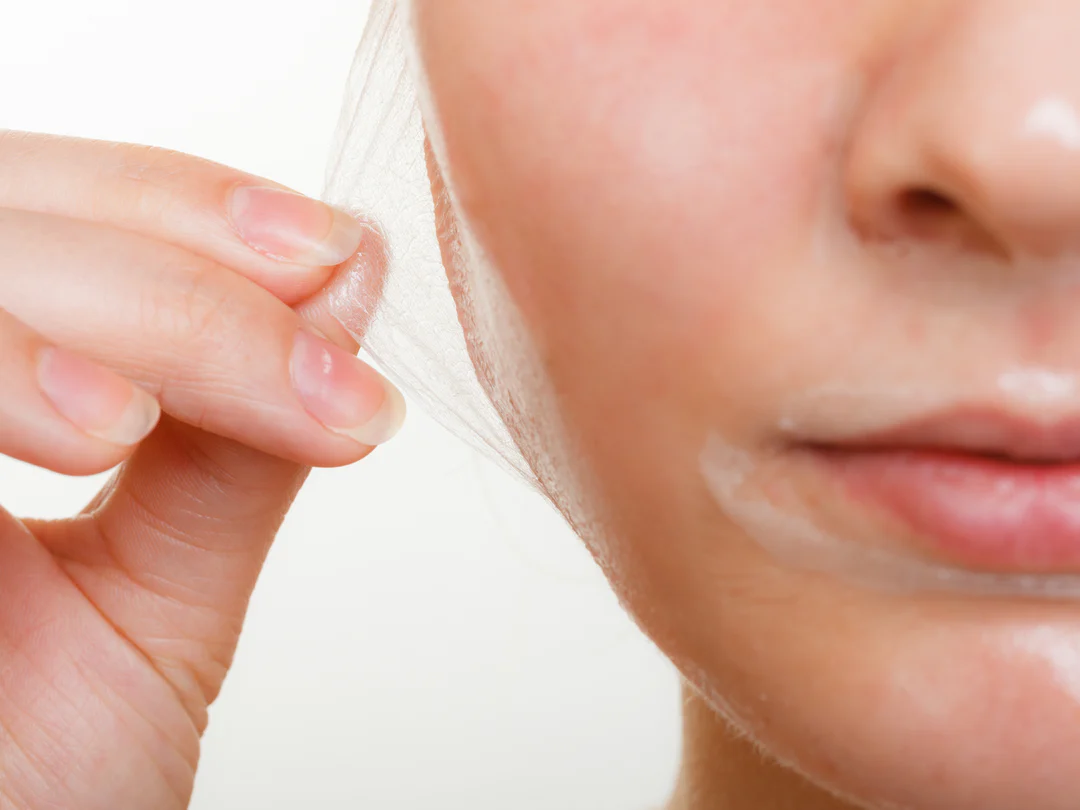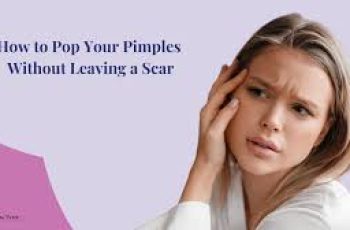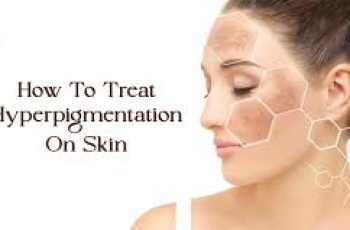Best care for dry, irritated skin
Dryness, tightness, redness, itching. If your skin struggles with these problems every day, you may have “atopic” skin.
Atopic skin has similar characteristics to sensitive skin, but atopic skin needs to be treated more gently and with anti-itch products that contain active ingredients.
If you have atopic skin, follow some tips from Absolution and learn how to best care for it. Characteristics of atopic skin.
Your skin is your first line of defense against environmental influences such as cold, UV rays, bacteria and urban pollution. This means that your skin has a lot to deal with! But sometimes it’s all too much and it seems impossible to
keep your skin feeling comfortable or looking beautiful.
If you have atopic skin (your skin easily reacts to the smallest things), it means that your skin is not able to act as an effective protective barrier. This makes it more sensitive to environmental influences,
immediately causing redness, tightness and discomfort, as well as stinging sensations, often accompanied by a strong urge to scratch. However, if you give in and scratch, your skin will feel even more uncomfortable
and may be left with painful lesions.
The hydrolipidic film of atopic skin is unbalanced – similar to sensitive skin. It is either lacking in water or oil, and sometimes both.
To care for and soothe the skin, it is important to take preventive measures immediately at the first sign of discomfort. Trust in nature and use Absolution certified organic skin care products for a targeted beauty routine that is
gentle on atopic skin.
How to care for atopic skin. Use the right skin care products to restore the skin’s hydrolipidic film. Remove makeup and calm your mind. To restore the skin’s hydrolipidic film, you must use the right products at every stage of your skin care routine, starting with makeup removal. Look for particularly gentle formulas, such as creams or balms with soothing active ingredients and a soothing texture. La Crème Douce Démaquillante and Le Baume Céleste
are very gentle and perfect for anyone with atopic skin.
La Crème Douce Démaquillante cleanses, removes makeup, softens and repairs even the most sensitive skin.
It contains active ingredients such as healing aloe vera, softening St. John’s wort and ultra-soothing neroli hydrosol, which intensively nourish the skin and are therefore particularly suitable for atopic skin types.
Soothe your skin and your mind! – Try Le Baume Céleste! This gel-oil makeup remover contains blue tansy to take care of easily irritated or upset skin.
Also known as blue chamomile, this ingredient has been included in plant pharmacopoeias for centuries and is recommended for allergic reactions. When the leaves of blue tansy are distilled, a blue essential oil is produced. This oil is rich in Chamazulene, a compound known for its calming and soothing properties, which can immediately relieve atopic skin affected by the sun or cold.
Moisturize and protect. Make sure to protect and moisturize atopic skin with skin care products rich in active ingredients that support the skin barrier. La Crème Riche is enriched with snow mushroom, which has antioxidant and protective properties. This intensively nourishing cream soothes sensitive skin and tight skin exposed to harsh conditions.
If your skin is more dehydrated than oily, opt for La Crème de Santé. This cream has a much lighter texture than La Crème Riche, but is still suitable for atopic skin. The formula contains hyssop extract – a plant that soothes sensitive and irritated skin and prevents redness.
If you want to add a richer texture, mix it with a facial oil like Addiction to create your personal skincare routine. Atopic skin is already sensitive enough, so the last thing you want to do is make it more sensitive! Avoid bathing or showering in water that is too hot, as this can weaken the hydrolipidic film and cause itching and discomfort. And don’t forget to take care of the skin on your body, too. Look for products with soothing formulas that are free of controversial ingredients like sulfates, parabens, phthalates, mineral oils, GMOs, and synthetic fragrances or dyes. Le Lavant Corps Doux gently cleanses your body, while our organic body lotion, Le Lait Peau Douce, softens your skin. Remember to hydrate your skin from the inside out. Drink plenty of water or herbal teas with soothing plants that are good for your skin, such as burdock or wild pansy. Watch your diet and try to eat anti-inflammatory foods. Avoid fried or processed foods and refined sugars. Look for foods with essential fatty acids like omega-3, which are found in “fatty” fish like salmon, sardines and mackerel. Last but not least:
Make sure you get enough sleep. When you sleep, your body regenerates and cell turnover is most active. This process is important for relieving itching and improving atopic skin conditions. Your skin should feel good. With
With proper care, this is possible.
DQH Can I use salicylic acid first and then vitamin C?
It’s easy to create a skincare routine, but knowing how to use it is another thing entirely. In most cases, if you’re not getting the desired skin results, it could be due to the layering of conflicting ingredients. So, is it possible that salicylic acid and vitamin C are such ingredients? Or are these active ingredients the duo that’s been missing from your skincare routine? If you want answers, stick around because today we are going to explain the benefits of salicylic acid and vitamin C and how they can be used in your daily life.
What are the benefits of salicylic acid for skin?
Salicylic acid is one of the most commonly used beta hydroxy acids and is favored by many people with oily, acne-prone skin. This acid is derived from willow bark, and unlike its water-soluble relatives (called alpha-hydroxy acids), salicylic acid is oil-soluble, which means it can penetrate deeper into the lower layers of the skin. Once it reaches the lower layers, it can help unclog pores of excess sebum, dirt, bacteria, debris, and impurities. This results in clearer skin tones and greater definition.
Not only does salicylic acid benefit the underlying layers, but the outer surface of the skin benefits as well. When applied to the skin, salicylic acid removes the buildup of dead skin cells. This is accomplished by breaking the bonds that hold dead cells to the surface. Over time, this can cause the complexion to look dull and prone to acne, blackheads, and other blemishes.
If you’d like to learn more about salicylic acid and how it can improve your skin, check out this dedicated blog post from a beauty insider.
What are the benefits of vitamin C for skin?
Vitamin C is considered one of the most powerful antioxidants, which means it is very effective at fighting free radicals and preventing them from causing further skin damage. Examples of free radicals include pollution, central heating, UV rays and harsh climate. They attack proteins, fats and cell membranes as soon as they come into contact with the skin, causing signs of premature aging such as fine lines and wrinkles as well as hyperpigmentation, flaky patches of skin and loss of elasticity.
Many people usually prefer to use vitamin C in their morning routine as this ingredient gives the complexion a radiant glow. You’ll also find that vitamin C can target areas of hyperpigmentation, plumping the skin and reducing the appearance of fine lines and wrinkles.
The thing about vitamin C is that there are a lot of outdated studies going back to the 1950s that describe vitamin C as an unstable skin component. Thanks to improvements in modern technology, this is no longer the case as all products now contain a stable form of vitamin C.
Visit The Beauty Insider to learn more about vitamin C. So please check out our blog post.
Can I use salicylic acid first and then vitamin C?
Yes, you absolutely can. In fact, it’s thought that using salicylic acid before using vitamin C ensures it penetrates faster and works faster.
This is an efficient way to utilize two power sources, and the reason has to do with pH. For example, the skin’s natural pH is about 4.7, making it slightly acidic. Salicylic acid and vitamin C are also both acidic, and you’ll find that vitamin C is absorbed quickly into the skin. Therefore, using salicylic acid beforehand can increase the acidity of the skin and allow vitamin C to penetrate into the skin faster.
While this is considered an effective way to combine two powerful ingredients, you need to be aware of your skin type and how it reacts to certain active ingredients. Even people with perfect, normal skin can experience skin sensitivity and irritation. Therefore, always consult a doctor or dermatologist before using any new products on your skin.
It’s also important to follow skin application rules. In this case, you need to use the product correctly to ensure you get the best results for your skin. If you’re not sure what I mean, the basic rule for skin is to start with the thinnest consistency and work your way up to the thickest consistency. This prevents a barrier from forming on the surface, preventing other active ingredients from penetrating the skin.
Can I use salicylic acid at night and vitamin C in the morning?
Yes, absolutely, this is considered the most effective way to get returns without any adverse side effects. This is because there is enough time between applications to ensure that the skin’s pH levels return to balance.
You’ll also find that Vitamin C is rich in antioxidants and is perfect for use in the morning to ensure your skin is protected and looking its healthiest. Due to the small size of salicylic acid molecules, it is an acid that is able to reach the deepest parts of the skin. While this is effective at keeping skin clear, it also increases the risk of irritation and photosensitivity. Therefore, many people prefer to use powerful BHAs in their evening routine without exposure to UV rays, pollution, or harsh weather.
Warning: If you avoid using sunscreen every day, none of these ingredients will do what your skin needs. The combination of chemical peels and powerful ingredients increases the risk of further damage to the skin’s surface. Use SPF 50 every day to keep your skin protected and your lipid barrier healthy, even on cloudy days, keeping your skin in top condition.



